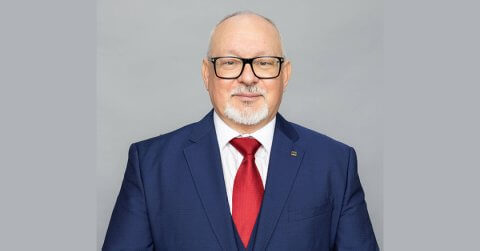
Graham Easton, Managing Director at ENGIE Solutions IFM GCC, explores the impact of rapid growth on infrastructure quality, talent shortages, and the long-term sustainability of data centres in the region.
Dubai — With unprecedented investment flowing into digital infrastructure across the Middle East, the region is experiencing a boom in data centre development. But with fast-tracked timelines, skills shortages, and mounting sustainability pressures, critical questions arise about the long-term resilience and operational performance of these facilities.
Graham Easton, Managing Director of ENGIE Solutions IFM GCC, sheds light on the challenges and solutions facing the sector—from talent retention and commissioning risks to bridging the gap between green construction and true sustainability.
Interview Excerpts:
How does the rapid expansion of the Middle East data centre market impact the long-term quality and resilience of infrastructure, particularly with projects being fast-tracked to meet investor timelines? Rapid growth in Middle East data centers prioritises speed over quality, leading to facilities being rushed to market before full commissioning. This creates risks throughout their operational life. Data centers are complex ecosystems that require thorough validation of critical systems, which is often bypassed due to pressure to meet investor timelines.
With a growing talent shortage in the data centre sector, how are operators addressing the dilution of expertise, and what strategies are being adopted to attract and retain critical skills in the region?
A significant skills crisis in data centers is driven by a lack of technical expertise and experience. This is exacerbated by talent poaching instead of workforce development, leading to diluted expertise, increased salary costs, and higher operational risks. The solution requires a shift in human capital development, including standardised certification programs for technicians, similar to existing facility benchmarks. Educational partnerships, data center-specific curricula, apprenticeships, and minimum certification standards are crucial for protecting industry investments.
What potential risks are associated with commissioning data centre facilities prematurely under commercial pressure, and how can stakeholders enforce more rigorous testing protocols pre-launch?
Premature data center commissioning, driven by commercial pressure, is a significant risk. Rushing this critical phase, where design meets reality, leads to inadequate testing, poor knowledge transfer, and unvalidated emergency systems. Consequences include higher failure rates, reduced energy efficiency, increased maintenance, and critical failures during peak demand due to inadequately tested, interconnected systems. Mitigating this requires rigorous testing protocols, ample time for integration testing, early engagement, and deep collaboration with service partners, fostering a shared responsibility for facility safety and reliability.
While many data centres boast green construction certifications, there appears to be a disconnect regarding operational sustainability. How can we close the green finance gap and drive true efficiency beyond the build phase?
Middle East data centers struggle with operational sustainability despite green building certifications. The harsh climate, high energy costs, and regulations necessitate it, but initial sustainability efforts often neglect operational systems like cooling (40-50% of energy). Bridging this gap requires dynamic solutions from design, including hybrid/free cooling and active energy monitoring. AI-driven smart O&M systems offer significant opportunities to optimise performance, predict maintenance, and continuously adjust operations for energy efficiency, reducing costs and environmental impact while addressing skill shortages. Financial structures must also evolve, with green financing tied to performance metrics throughout the facility’s operational life.
In light of global geopolitical tensions disrupting just-in-time supply chains, how are data centre operators in the Middle East adapting their procurement and inventory strategies to safeguard uptime and avoid costly disruptions?
Geopolitical volatility and supply chain issues necessitate a strategic approach to procurement for critical infrastructure, particularly in the Middle East, due to its transit vulnerabilities. Developers must prioritise regional support, spare parts, and supply chain resilience over initial cost in supplier evaluations, adopting total-cost-of-ownership models. Strategic stockpiling and diversified, regional supplier relationships are crucial for risk mitigation, offering faster response times and reduced global dependency despite local challenges. Data center operators need to become proactive supply chain managers, investing in expertise, inventory systems, and regional relationships to ensure reliability for digital transformation.


